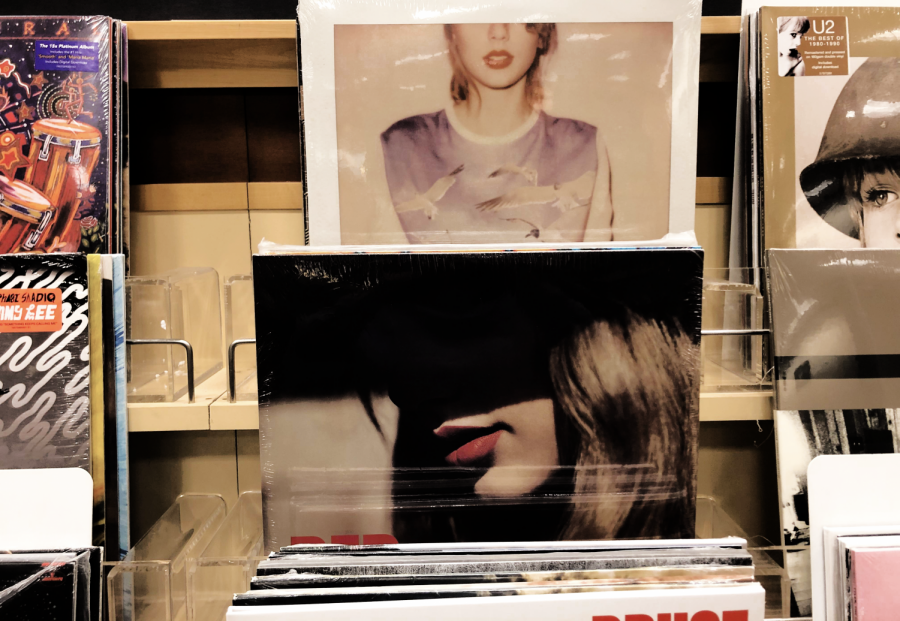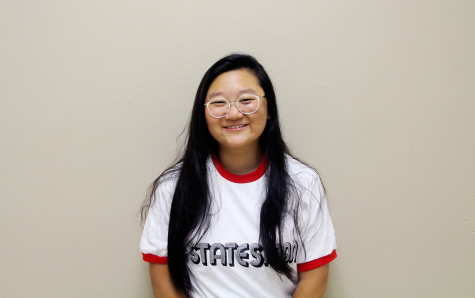Why do we hate teenage girls?
Author Kerry Winfrey writes about author Chuck Klosterman in a blog post, “He was talking about hair metal (like usual) and he said something to the effect that hair metal’s decline was due, mostly, to teenage girls. Because once teenage girls start liking something, it’s over. It’s not cool anymore.”
March 5, 2020
I was seven-years-old in 2009, and I thought I had a whole league of more profound things to say than I actually did. Now I look back at it fondly and foggily, remembering both a general sense of happiness and an on-brand childhood cynicism. There were notable events in 2009, sure, that might be remembered by an older person. The swine flu swept the nation, exacerbating the ongoing recession, and, in a chain of events that would later be immortalized in 2013’s “Captain Phillips,” pirates hijacked a cargo ship southeast of Somalia.
None of these things meant anything to me in 2009. Even swine flu, which the adults in my life spoke of incessantly, seemed a problem to which I’d never succumb. I wasn’t worried. No — in 2009 and the early 2010s, I was concerned with, in my mind, a far more terrible epidemic. I suppose I fancied myself a precocious hipster. It’s the death of music! I think I would’ve said, if I were 23 in 2009, and constantly proclaimed that every new trend signaled the death of something or other. The death of literature! The death of TV! How overrated is so-and-so! How overplayed is such-and-such!
Because I was seven, I said nothing of the sort. Instead, my choice words of criticism aligned more with “It’s stupid” or “It’s annoying” or “Ew.” Regardless, I would’ve been talking, of course, about the things that were popular with pre-teen and teenage girls in 2009. Justin Bieber’s “Baby” had just been released, and he was quickly rising in popularity due to his swoopy hair and his high, prepubescent voice. Stephanie Meyer published the first “Twilight” book and catapulted an entire generation of girls into a lifelong obsession with vampires and werewolves. “Hannah Montana: The Movie” got a theatrical release. My hatred for all of these things, as I imagine was the way for many of my peers and adult critics with a vengeance against all these creations, was more of a visceral reaction than anything. I thought I was very profound for disliking the things which were most popular with teenage girls; and yet, I hadn’t read a single “Twilight” book. I had no real opinions about the song “Baby.” I was simply young, impressionable and thus absorbed a constant stream of criticism and hate that shaped my formative years. I really had no room to talk. My favorite music was by Katy Perry. I solely watched Nick Jr. I was as mainstream as mainstream gets; yet, I felt a sense of superiority when I bashed “Twilight,” and Justin Bieber, and later One Direction and Miley Cyrus. I felt that I was somehow above those pre-teens in line at the Twilight premiers, screaming about Robert Pattinson’s abs, who didn’t realize that sparkly vampires were so uncool, or that Edward was creepy and Bella was a weak heroine. With an incredible passion, I hated teenage girls, despite the fact that I was only a few years away from becoming one.
But it wasn’t just me. It was a phenomenon that swept the nation. Despite “Twilight”’s $69.6 million opening weekend, there was a heavy atmosphere of hate directed toward the movie — toward the stupidity of the entire ordeal, the stupidity of the fans or even the fact that it was unfeminist, despite author Stephanie Meyer’s protests to the contrary. The Guardian said about the Twilight movies and Stephanie Meyer: “Women are using their regained power over the picturehouse to trash their hard-won independence.” Charlie Brooker begins his opinion of Twilight, written in July of 2010, with: “Until this week the one thing I knew about the Twilight saga was that it had vampires in it, which was enough to put me off. I didn’t realise it was a romantic fantasy aimed at teenage girls. Turns out it’s possible to be put off something twice before you’ve actually seen it.”
And so it goes on. Had 16-year-old Justin Bieber really done anything to deserve all the hate he received from disgruntled middle-aged critics? Had One Direction? Had Taylor Swift? Anything and everything marketed toward teenage girls, or which attracts a large audience of girls, tends to be immediately written off as a complete waste of time and energy.
And some of the criticism is deserved, sure. Are any of these franchises or these people the epitome of art and creativity, and completely unflawed? Absolutely not. Not all the criticism they receive is completely undeserved. But are they deserving of the constant stream of negativity, the nitpicky criticisms and the blind hatred? No. There’s a reason the franchises that teenage girls like become so popular, a reason they speak to us so much. But we hate teenage girls. We hate anything that teenage girls like. We think that teenage girls are cringy, and we find their enthusiasm overwhelming.
Even teenage girls hate teenage girls.
It wasn’t a new phenomenon in 2010, and it hasn’t ended since then. We’ve seen the rise and fall of “pumpkin spice lattes and skinny jeans” said with a lip curl of disgust. In the ‘60s, teenage girls were patronized for their enthusiasm for the Beatles. Teenage girls liked John Green, so we hated John Green. Teenage girls liked boy bands, so we hated boy bands. And even if hate is too strong a word, at the very least these things have been traditionally seen as lesser — less mature, less intelligent — forms of entertainment and overall ways of living.
When hydro flasks and scrunchies became trends among teenage girls, there was an immediate backlash against the VSCO girl, seen as a perplexing phenomenon, the epitome of the trendy teen. So people made fun of it, forcing a negative connotation on the products that were once so beloved by teenage girls. Did anyone actually identify with the term VSCO girl? No. But we forced the label and, once again, patronized the interest of teenage girls.
The constant stream of anger and hatred directed at teenage girls does have a profound impact on our lives and our identities. I, for one, have certainly vacillated significantly between the teenage girl within me that found these trends cool, and the other part of me that hated the idea of being lumped in with the rest of the teenage girls. When everyone else sees teenage girls and the things that they like as lesser, and when teenage girls are constantly told that their interests are lesser, it’s easy for teenage girls to start seeing themselves as having lesser value just because of their age and gender. It’s an endless, exhausting cycle, and it’s time to end that cycle.
Nobody’s asking you to love what we love. Nobody’s asking you to praise it or call it art or even understand it. But maybe it’s time you leave us alone and let us enjoy our mediocre media and our weird trends in relative peace. After all, we do the same for you.









